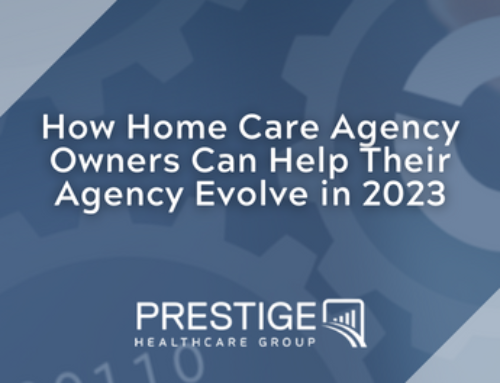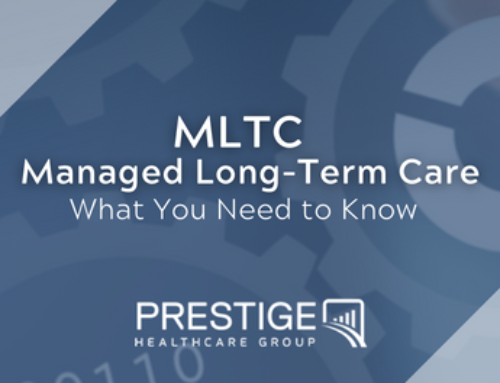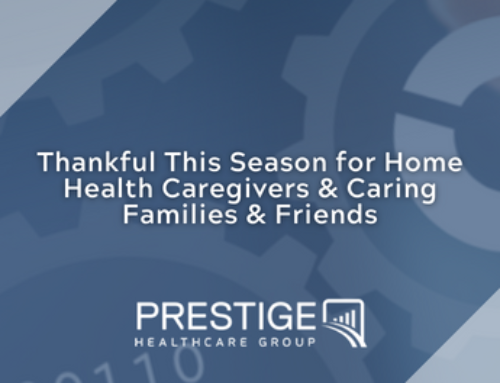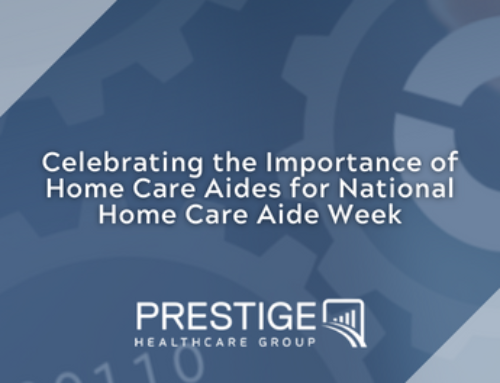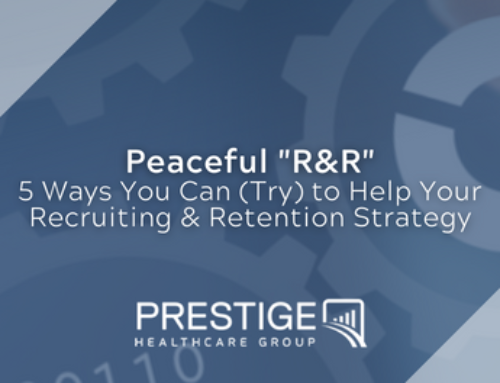Finding the Right In-Home Care Agency – 6 Things to Think About
Our passion at Prestige is simple. Give people a better life than yesterday. A big part of that mission is providing adequate home care, and providing our caregivers with the tools and support to provide the best care possible for our clients. Everyone’s journey is different, but at some point in every person’s life, they will need assistance in order to live a safe, fulfilling, and happy life.
Aging at home enables a loved one to continue to experience life in the familiar home environment that they are used to. Our homes provide safety and comfort through decades of time and memories. Regardless of how independent and capable a life someone has lived, eventually, daily routines, activities, and chores can become more and more challenging without assistance.
Friends and family can only do so much, and as day-to-day operations become more cumbersome, a dedicated professional caregiver becomes more and more realistic. Finding the right caregiver to provide in-home assistance can be intimidating, but preparation can prevent you from wasting your time or money on the wrong home care provider.
Today on the blog we wanted to touch on 6 things to think about that will get you started on determining whether or not a home care agency is right for you, or your loved one.
- Communicate with Doctors, Family, and Friends
- Assess Home Care Needs
- Assess Budget
- Find Options
- Feel It Out In the Interview Process
- Making a Decision
Communicate with Doctors, Family, & Friends
The first step in finding a home care agency for you, or someone close to you, is to speak openly and directly with those who know the case best. It’s vital to get insight from medical professionals working closely with the individual to understand what type of medical-related assistance the person needs, and provide directions you can provide to the caregiver.
Beyond the medical professionals, seek information and feedback from anyone who’s spent time providing care or assistance. Maybe an aunt, nephew, or other family member has been helping with the lawn or some chores perhaps. Ask them what their position on your loved one’s case is. They will be able to provide insight into areas that you may not have considered yet or felt needed help. Housekeeping, errands, and/or hygiene, as a few examples, could have been falling behind, but assess the status from anyone who’s spent time assisting through this transition.
Assess Home Care Needs
Now that you’ve talked to everyone close to the situation, and gathered as much feedback as you can, it’s time to write down exactly what type of help the person will need. Another big aspect of this portion is also assessing HOW OFTEN the person will need assistance with those tasks.
Understanding activities of daily life (ADL) and instrumental activities of daily life (IADL) will be helpful in understanding both WHAT will be needed AND HOW OFTEN it will be needed.
Some examples of basic ADL independent tasks would be:
- Mobility, Safely Moving About
- Eating & Drinking Fluids, Both Nutritionally and Regularity
- Personal Hygiene and Grooming
- Bathing and/or Showering
- Getting Dressed
- Using the Toilet/Bathroom Hygiene
Assess Your Budget
Before you approach an in-home care agency, it is important to know how much you can afford to pay for caregiving assistance. Speaking openly and transparently as a family may help uncover additional available sources of money. When the budget is tight, there may be options for additional funds. Your doctor will be able to confirm with you when you speak with them what types of coverage (Medicare, Medicaid, health insurance, long-term disability insurance) may or may not be available. Some members of the family may not be able to contribute time, but may offer additional funds to help the cause. Some people may have savings, be able to cash in other financial plans, or explore options with regard to their home’s mortgage.
Find Options
Finding a home care agency has become much less difficult as the internet has provided a lot of useful tools and insight into how a company represents itself and its approach to home care. You can get a point in the right direction from your doctor, as well as trusted family and friends. Trusted word-of-mouth referrals go a long way in home care. There are home care directories that are provided depending on what state you are in, and your local senior agencies that specialize in home care assistance will also be able to direct you to appropriate trustworthy options. Once you narrow your options down to a select few that you feel are worth interviewing, it’s time to choose which one’s best.
Feeling It Out in the Interview Process
Now that you’ve narrowed it down to a few choices, it’s time to do your due diligence on your final candidates. Most agencies will have a representative come by your place to conduct an interview with you, (and/or the person in need of care), to understand your needs. This obviously provides you with an opportunity to ask questions and vet your candidates.
Here are a few things to have in mind heading into a meeting with a prospective agency.
- Training & Experience Required for Caregivers
- Medical Training and/or licensing for medical-related needs
- Financial Cost & Payment Structure
- Background Check Policy for Caregivers
- Payroll, Taxes, and Legal Matters regarding their caregivers
- Price of services (hourly wage or shift payment)
Making a Decision
One big aspect of choosing the right agency for you is knowing how much care they put into matching your particular case with the right caregiver. Friends and families may be able to assist in providing the agency with some insight into the person’s personality and habits.
Now that we’ve established your needs and your budget, it will be up to the agency to find a qualified caregiver based on those needs and budget. The relationship between the caregiver and your loved one is vital because the caregiver is going to be a significant part of life moving forward. You’ll want to ensure a comfortable, stable, and constant relationship. Being honest with your agency about your personal preferences will help ensure that the match is one that can last, and be as productive as possible.
Patients, perseverance, kindness, and ability to connect should all be represented by both the caregiver & client in order to get positive results. Trust takes time and respect, but building companionship and friendship is a major factor in ensuring you have the best experience with any home care agency.
Hopefully, today’s blog helps those out there who may be considering home care for themselves or a loved one. We aim to help people better understand our industry so that they can make the right decisions to help give themselves and their loved ones a better day than yesterday!
